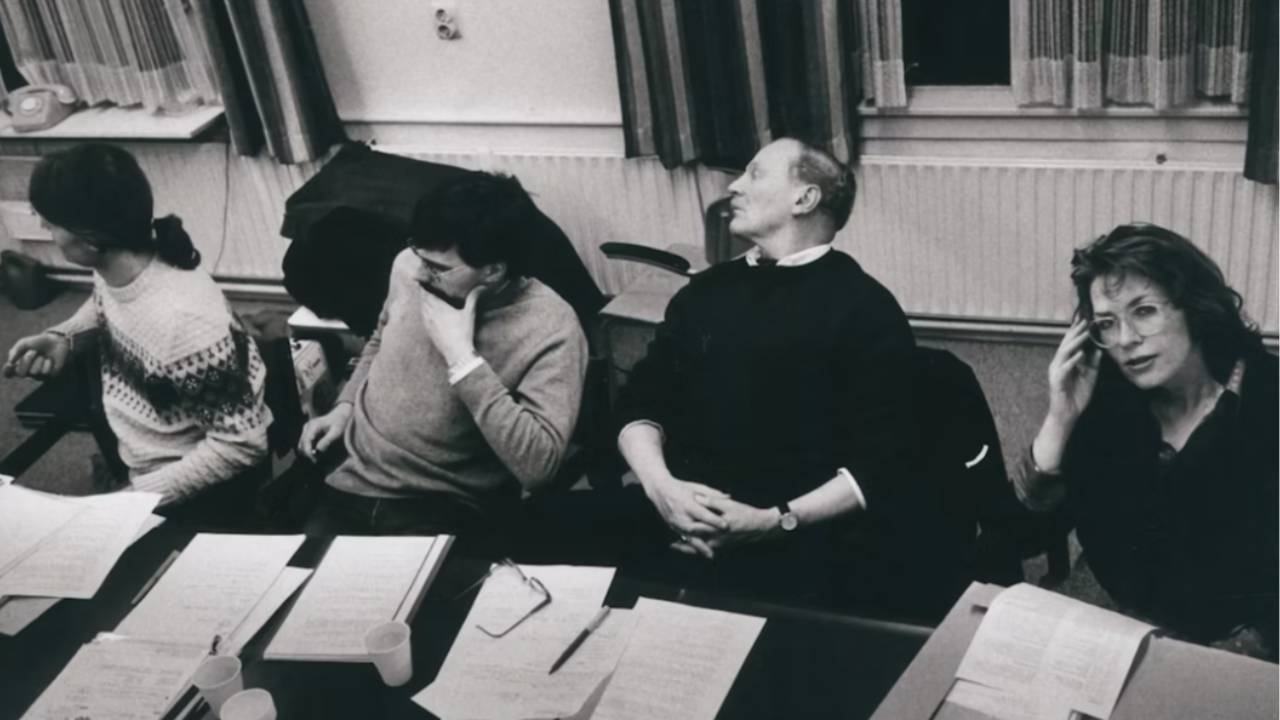Susan Young's
Amplify Blog
Passive-Aggressive Leadership is Quietly Sabotaging Your Bottom Line

Most A/E/C executives don't notice when leaders are being apathetic. You're often surrounded by it.
Across offices and jobsites, passive-aggressive communication is eroding trust, delaying approvals, and increasing costly mistakes.
😮Does this sound familiar?
“I guess that’s fine…” can bring approval delays.
Public praise and private undermining can lead to staff withholding critical project info.
Subtle gaslighting, like “That’s not what I said,” can cause frustration and confusion.
Here’s the impact:
🚩Project managers stop escalating risks
🚩Younger staff disengage
🚩Field-office tension increases
🚩Clients sense dysfunction
Let’s face it: Direct, accountable communication isn’t just a “soft skill.”
It’s operational risk management—and every missed conversation is a risk you can’t afford.
Ask yourself: Are you modeling the leadership your firm needs?
👉 Do your leaders address issues directly—or sideways?
👉 Is feedback clear and timely?
👉Are project conflicts resolved or buried?
Strong firms don’t toler...
Accountability Is Not a People Issue

When accountability breaks down, leaders often assume it’s a people issue.
But accountability is a structural outcome. ⬅️
It’s rooted in how roles, processes, and expectations are established across organizations.
Warning signs show up in your A/E/C firm, looking like:
👉Confusion about who owns what.
👉Work slipping through cracks.
👉Leaders stepping in to “fix” things.
👉Teams feel blamed instead of supported.
👉Repeated breakdowns in the same places.
Accountability isn’t enforced; it’s designed.
It’s the result of clear ownership, transparent processes, and proactive communication.
🎯Here's the truth: Real, sustainable accountability comes from intentional organizational design.
Course-correcting after the fact is not a sound business solution.
The Moment Technical Leaders Lose Leverage

I’m seeing a recurring leadership risk inside A/E/C firms right now.
Strong project managers get promoted; their technical performance is consistent, but something quietly breaks down in high-stakes conversations with clients, principals, or internal teams. 🚩
The risks are higher, and expectations shift from expertise to influence—subtle but critical.
Leaders sense it early.
The hesitation, the over-explaining, and the missed cues are warning signs.
These moments erode trust and can affect a leader’s credibility—even when intentions are good.😮
The challenge isn’t confidence or personality.
➡️The real issue is conversational judgment. It’s a skill that’s rarely measured until it’s already had an impact on results.
Typically, it's a negative impact that results in frustration and lost bids.
🔷This month, I’m opening a small number of private Leadership Conversation Audits for firm leaders who want clarity around a specific emerging or newly promoted leader—and what to correct, coach, or recalibr...
Why Strong Project Managers Struggle in Executive Conversations

I’m seeing a recurring leadership risk inside A/E/C firms right now.
Strong project managers get promoted; their technical performance is consistent, but something quietly breaks down in high-stakes conversations with clients, principals, or internal teams. 🚩
The risks are higher, and expectations shift from expertise to influence—subtle but critical.
Leaders sense it early.
The hesitation, the over-explaining, and the missed cues are warning signs.
These moments erode trust and can affect a leader’s credibility—even when intentions are good.😮
The challenge isn’t confidence or personality.
➡️The real issue is conversational judgment. It’s a skill that’s rarely measured until it’s already had an impact on results.
Typically, it's a negative impact that results in frustration and lost bids.
🔷This month, I’m opening a small number of private Leadership Conversation Audits for firm leaders who want clarity around a specific emerging or newly promoted leader—and what to correct, coach, or recalibr...
The Client Experience Gap

Client challenges don't typically come from poor intentions or weak talent.
Problems on projects come from inconsistent processes that leave teams guessing in high‑stakes moments.
This is the client experience gap that shows up as miscommunication:
🚩Different PMs delivering wildly different experiences
🚩Missed details that should be automatic
🚩Clients feel like they need to manage the team
🚩Rework caused by unclear handoffs
🚩Leaders stepping in to “save” meetings
Your clients don’t want heroics.
They want consistency.
🎯Consistency comes from communication-based systems.
The completion of successful A/E/C projects requires strong foundations.
Not just effort.
Why Meetings Drain Organizations and People

Executives often feel trapped in meetings because the organization hasn’t built processes that allow decisions to happen without them.
Meeting fatigue is a real thing for staff at all levels.😮
Common symptoms:
Meetings that exist only to clarify what should already be clear.
Does this sound familiar?
➡️Leaders are being asked to approve routine decisions.
➡️Teams are waiting for direction instead of moving forward.
➡️Endless status updates instead of real problem‑solving lead to a lack of productivty.
Meetings aren’t the issue.
Missing systems are.
The Invisible Talent Drain in A/E/C

Many A/E/C firms point to recruiting as their main challenge.
But is that truly the core issue?
Here's the real issue: Retention suffers because expectations are unclear and development is fragmented. That’s what’s draining your talent.
The signals become obvious once you look more closely:
🚩New hires struggle to ramp up.
🚩Mid‑level staff feel stuck.
🚩Managers spend more time correcting than coaching.
My nephew and niece, 26 and 32, both started new jobs recently in completely different fields.
Each prefers to work independently. Both are very smart.
Each told me they've asked for help finding project info.
Each said their boss barked, "Find it yourself."
More than once.
This isn't leadership or coaching.
It isn't a culture that welcomes smart people.
This isn't about coddling younger staff; it's about coaching and knowledge transfer.
People leave jobs for clarity—a clear path, clear coaching, clear expectations—not just for higher pay.
People don’t quit hard work.
The Real Issue A/E/C Executives Are Dancing Around

Most industry leaders I speak with aren’t worried about strategy.
Instead, their main concern is execution through people.
✅They know the plan.
✅They know the numbers.
✅They know the market.
Here's the truth about what keeps them up at night:
“Can my leaders actually move the ball forward without me in the room?”
Communication gaps don’t show up as “communication problems.”
Instead, they appear as rework, missed signals, slow decision-making, and shaky client trust.
Addressing these hidden challenges is the real leadership issue in 2026.
It's not solved by another process or framework.
It’s solved by elevating conversations within the firm.
3 Things A/E/C Leaders Must Prioritize Before the New Year

I met yesterday with a leader of a national construction trade organization to discuss hot-button issues our industry faces as we head into 2026.
We weren't discussing tech skills.
➡️Instead, we were focusing on the critical need for the younger workforce to uplevel their interpersonal communication.
I imagine these takeaways will resonate with you:
- A/E/C's fragmented ecosystem must be improved to enhance job site safety, messaging, and knowledge transfer.
- Newer staff must become proficient in decision-making, problem-solving, and other critical thinking skills. Clarifying information and logical thought processes improve job site safety, project completion, and leadership development.
- Bi-directional knowledge in our multigenerational workforce is essential for continuous learning. Communication is not linear; rather, it is an ongoing process for all generations to embrace.
Here's the truth: Each of these points — along with cybersecurity — is a stark reminder to prioritize ...
Data Centers are Booming, But Seller-Doer Meetings Don't Need More Data

It’s no secret that data center construction is booming.
It’s mostly fueled by AI and our demand for more data, faster speeds, and more answers.
But here’s the irony I see every week in A/E/C business development.
Seller-doer interviews aren’t lost because teams lack data.
Firms lose bids because decision-makers are overwhelmed with too many numbers.
Clients already have plenty of data from proposals.
Here’s the truth: Stakeholders are deciding if they trust who is in the room.
Successful interviews aren’t driven by slide decks—they’re driven by human connection.
• Clear, confident storytelling
• Thoughtful small talk that builds rapport
• Being present, personable, and intuitive
• Reading the room and responding—not rambling
Artificial Intelligence may be transforming how projects are designed and built.
But people still hire people.
This human side of communication is exactly why I created Top Tier Communicator.
It's where A/E/C’s emerging leaders develop essential sk...


